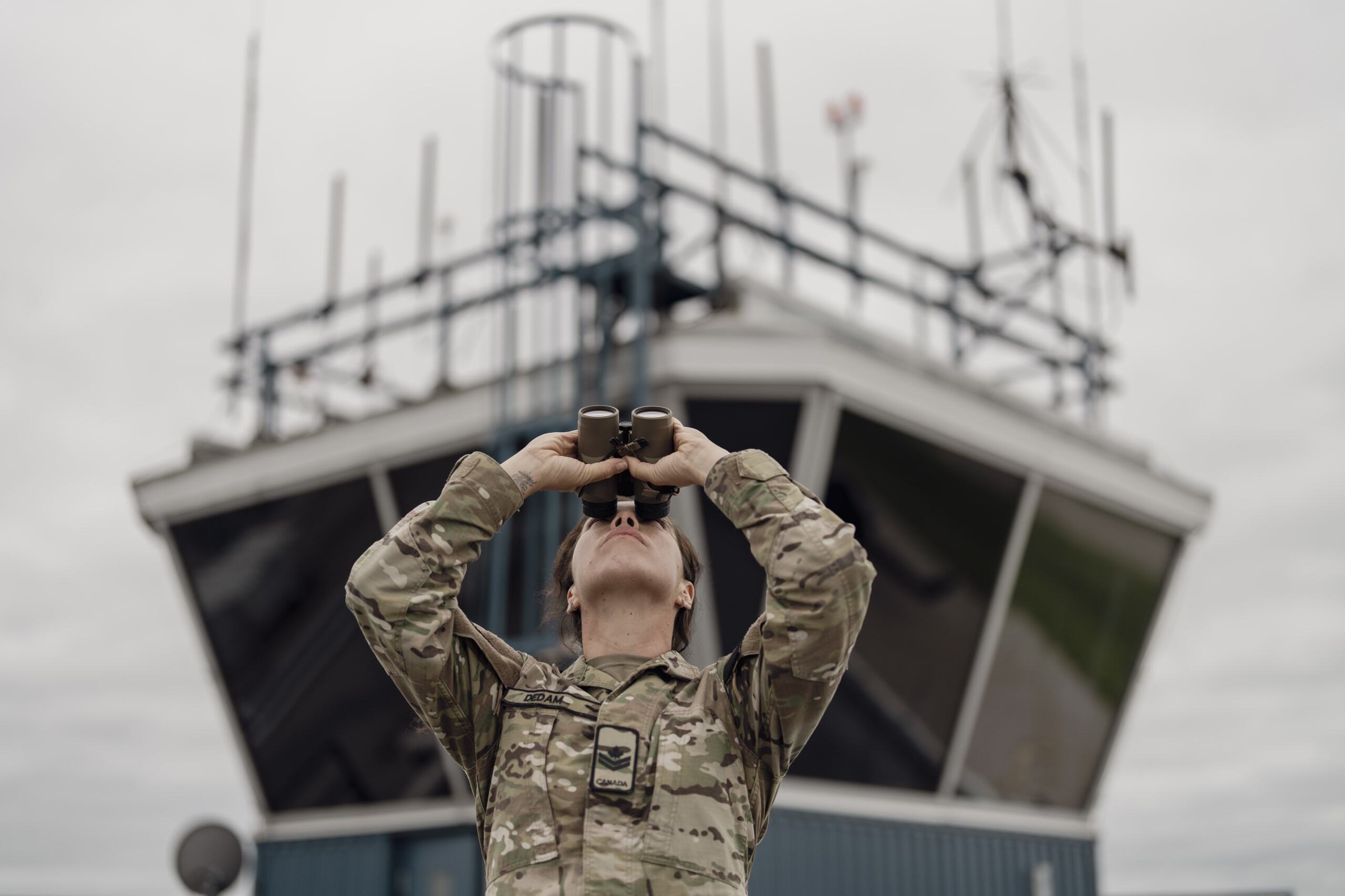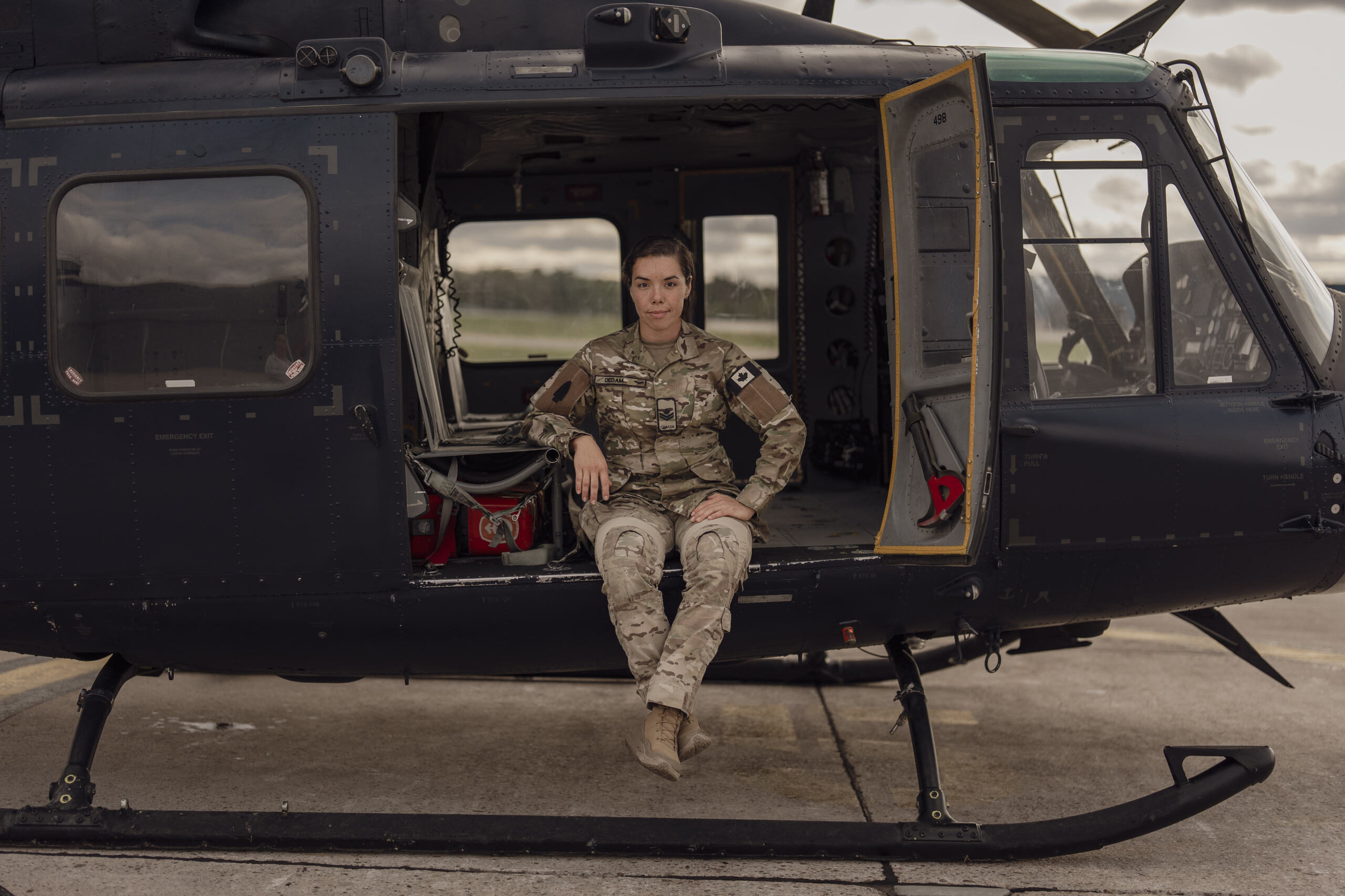
DISCOVER
THE HIGH STAKES WORLD OF A METEOROLOGICAL TECHNICIAN.

THE HIGH STAKES WORLD OF A METEOROLOGICAL TECHNICIAN.
FOR A LOOK INSIDE THE SKILL, EXPERTISE AND DEDICATION BEHIND THE OCCUPATION.


MASTER CORPORAL CHRISTINE DEDAM AS THEY WALK YOU THROUGH A DAY IN THE LIFE.
As a member of the military, Meteorological Technicians observe, brief on and forecast weather conditions in support of operations at Royal Canadian Air Force Wings and Squadrons, on Royal Canadian Navy Ships at sea and in Army facilities.
Their primary responsibilities are to:
Generally, meteorological observing offices are located near airfields. While much of a Meteorological Technician’s time is spent indoors in a weather office, duties require regular trips outdoors to observe and report on all types of weather phenomena. Meteorological Technicians work rotating shifts. In a Naval environment, they will work and live onboard a ship. If posted to an artillery unit, they will participate in field exercises under operational and combat conditions.
If you chose a career in the Regular Force, upon completion of all required training, you will be assigned to your first base. While there is some flexibility with regards to postings (relocations), accommodations can’t always be made, and therefore, you can likely expect to move at some point in your career. However, if you decide to join the Primary Reserve Force, you will do so through a specific Reserve unit. Outside of training, your chosen Reserve unit will be your workplace on a part time basis, and you will not be obligated to relocate to a different base. As part of the Primary Reserve Force, you typically work one night per week and some weekends as a minimum with possibilities of full-time employment.
The first stage of training is the Basic Military Qualification course, or Basic Training, held at the Canadian Forces Leadership and Recruit School in Saint-Jean-sur-Richelieu, Quebec. This training provides the basic core skills and knowledge common to all trades. A goal of this course is to ensure that all recruits maintain the Canadian Armed Forces (CAF) physical fitness standard; as a result, the training is physically demanding.
After Basic Training, Army recruits go to a Military Training centre for the Basic Military Qualification – Land Course for approximately one month, which covers the following topics:
Learn more about Basic Training here.
Meteorological Technicians attend training in Winnipeg, Manitoba, for 20 weeks that includes the following subjects:
Meteorological Technicians may be offered the opportunity to develop specialized skills through formal courses and on-the-job training, including:
As they progress in their career, Meteorological Technicians who demonstrate the required ability and potential will be offered advanced training. Available courses include:
No previous work experience or career related skills are required. CAF recruiters can help you decide if your personal interests and attributes match the criteria for this occupation.
The minimum required education to apply for this occupation is the completion of the provincial requirements for Grade 11, Secondary 5 in Quebec or equivalent, including:
Foreign education may be accepted.